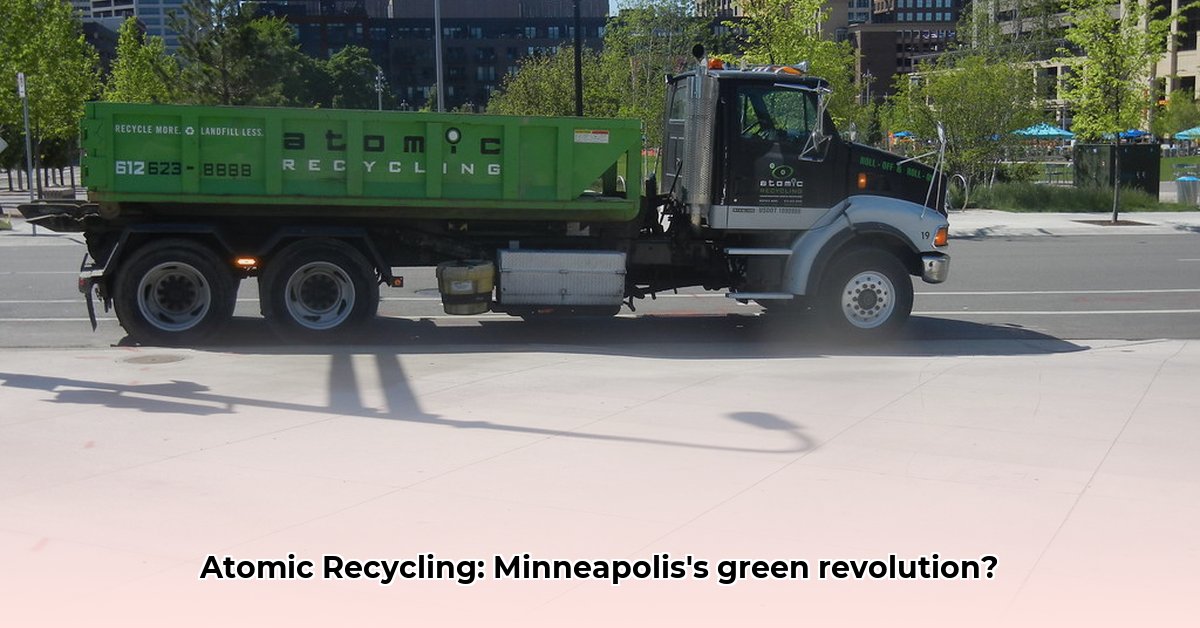
LRS, a leading Twin Cities waste management company, has acquired Atomic Recycling, a Minneapolis-based specialist in construction and demolition (C&D) waste recycling. This strategic move significantly boosts the region's sustainability efforts by addressing the challenging task of diverting construction waste from landfills. The merger promises a greener future for Minneapolis, although integrating operations and navigating regulatory hurdles present key challenges. For more examples of successful local recycling initiatives, check out Mohawk Salvage.
Understanding the Partnership
LRS, a well-established player in the waste management sector, brings substantial resources and a commitment to environmental responsibility. Atomic Recycling, known for its high C&D recycling rates and local expertise, provides the specialized knowledge to efficiently process a notoriously difficult waste stream. This merger represents a powerful combination of resources and specialized expertise, creating a more comprehensive and sustainable waste management solution for the Twin Cities.
LRS: Expanding its Green Footprint
For LRS, the acquisition represents a strategic expansion into a high-growth segment of the waste management industry. By integrating Atomic Recycling's operations, LRS gains immediate access to a proven C&D recycling model, enhancing its service offerings and bolstering its commitment to sustainability. How will this expanded capacity impact their ability to serve existing clients? This will be a key factor in evaluating the long-term success of this merger.
Atomic Recycling: A Legacy of Sustainability
Atomic Recycling's success in the demanding C&D waste recycling sector has set a high standard for environmental responsibility. Their impressive recycling rates demonstrate their expertise in handling complex materials and their dedication to environmentally sound practices. This expertise is a crucial asset in LRS’s expansion of its sustainable waste management offerings. What innovative technologies did Atomic Recycling utilize that LRS plans to incorporate throughout the company? This increased efficiency could significantly reduce the environmental impact of the entire waste management chain.
Stakeholder Impacts: A Multifaceted Effect
The LRS-Atomic Recycling merger has far-reaching consequences for various stakeholders.
LRS: The acquisition provides immediate expansion of services and expertise in C&D recycling, potentially leading to increased market share and revenue. Long-term, the integration may result in organizational efficiencies.
Atomic Recycling Employees: Employees gain access to opportunities for career advancement within a larger organization. Short-term adjustments are expected as systems are integrated.
Customers: Existing LRS clients might expect expanded waste management options, including more comprehensive C&D recycling services. Atomic Recycling's clients can anticipate a seamless transition under the LRS umbrella.
Competitors: This merger increases the competitive landscape, prompting other companies to adapt or innovate in their sustainability practices.
Community: The merger’s positive environmental impact is significant, reducing landfill waste and improving recycling rates. Construction projects are likely to benefit from more efficient and sustainable waste management options.
Regulators: Compliance with environmental regulations will be a key priority throughout the integration process. LRS's commitment to transparency and regulatory adherence will be critically important.
Challenges and Opportunities: Navigating the Integration
While the potential benefits are substantial, challenges remain. Integrating different operational systems, ensuring regulatory compliance, and effectively merging company cultures are all key hurdles. Data integration will be critical to optimization, and potential technological limitations must be considered. Furthermore, maintaining positive relationships with all stakeholders will be vital throughout the transition.
Conclusion: A Sustainable Future for Minneapolis
The LRS acquisition of Atomic Recycling represents a significant step toward a more sustainable future for Minneapolis. By combining resources and expertise, this merger aims to improve waste management practices, reduce landfill waste, and enhance recycling rates. While challenges exist, the potential for positive impact on the environment and the community is substantial. The success of this merger will be measured by the company’s ability to effectively manage the integration, innovate in recycling technologies, and maintain its commitment to sustainability.